 Dr. ISLAM Muhammad Fakhrul Babu 孫逸仙 (Sun yat-sen) recently talked with our reporter, Mr. Sajjad Hosain, in an interview, where Mr. Islam shared his personal views about the most recently asked questions from the local journalists and platforms in Hong Kong. That’s why Mr. Sajjad did not consider having any questions about Hong Kong. He wondered about international issues such as the Russia-Ukraine war and Israel-Palestine issues. But Dr. Babu politely avoids this issue, saying he wants to work for his community. The global problem is not his election matters. We pasted as it is what we received from Dr. Babu, the No. 6 Candidate of the Hong Kong District Council election, Yau Tsim Mong South Constituency.
Dr. ISLAM Muhammad Fakhrul Babu 孫逸仙 (Sun yat-sen) recently talked with our reporter, Mr. Sajjad Hosain, in an interview, where Mr. Islam shared his personal views about the most recently asked questions from the local journalists and platforms in Hong Kong. That’s why Mr. Sajjad did not consider having any questions about Hong Kong. He wondered about international issues such as the Russia-Ukraine war and Israel-Palestine issues. But Dr. Babu politely avoids this issue, saying he wants to work for his community. The global problem is not his election matters. We pasted as it is what we received from Dr. Babu, the No. 6 Candidate of the Hong Kong District Council election, Yau Tsim Mong South Constituency.
—-
Question:
Can you tell us a little more about yourself and your objective for the election?
Answer:
My Chinese name is 孫逸仙 (Sun Yat-sen), and my English name is ISLAM Muhammad Fakhrul Babu. I am a Candidate for Yau Tsim Mong South Constituency, Candidate No. 6. By profession, I am engaged in the trading business, and my passion is engaging myself in socio-cultural and other civil activities.
 I believe you already know I am running for the District Council election to bring the voices of ethnic minorities to the Government Level. Hong Kong embraces multiculturalism as an international metropolis as one of its core values. Respect for different religious beliefs and ways of life, equal opportunity, and inter-racial harmony are cornerstones of a harmonious society, and this is what the Basic Law authorizes. I proposed the new “Three Principles of the People,” which are ethnic harmony, public opinion as the root, and people’s livelihood as the foundation. First, the ethnic minority population in Yau Tsim Mong District is the largest in Hong Kong, and many of them have settled in Hong Kong and call Hong Kong their home. Therefore, ethnic integration is essential. Second, public opinion is the will, demands, and interests of the public, and it is the cornerstone of development in various fields such as politics, economy, culture, etc. It is necessary to ensure sufficient structures and organizations to listen to and collect the opinions of multiple stakeholders. Third, people’s livelihood refers to the needs and guarantees of citizens in life, education, medical care, elderly care, etc. I want to work together to promote racial inclusion and build an equitable, inclusive, and harmonious society! I hope my voters will support me, vote for me, and allow me to work for them.
I believe you already know I am running for the District Council election to bring the voices of ethnic minorities to the Government Level. Hong Kong embraces multiculturalism as an international metropolis as one of its core values. Respect for different religious beliefs and ways of life, equal opportunity, and inter-racial harmony are cornerstones of a harmonious society, and this is what the Basic Law authorizes. I proposed the new “Three Principles of the People,” which are ethnic harmony, public opinion as the root, and people’s livelihood as the foundation. First, the ethnic minority population in Yau Tsim Mong District is the largest in Hong Kong, and many of them have settled in Hong Kong and call Hong Kong their home. Therefore, ethnic integration is essential. Second, public opinion is the will, demands, and interests of the public, and it is the cornerstone of development in various fields such as politics, economy, culture, etc. It is necessary to ensure sufficient structures and organizations to listen to and collect the opinions of multiple stakeholders. Third, people’s livelihood refers to the needs and guarantees of citizens in life, education, medical care, elderly care, etc. I want to work together to promote racial inclusion and build an equitable, inclusive, and harmonious society! I hope my voters will support me, vote for me, and allow me to work for them.
Question:
Why did you plan to attend the DC election this year, particularly the direct election? Do you have concerns that the current political climate may discourage some from turning out and Voting?
Answer:
 As I mentioned earlier, I decided to stand in the District Council election to bring the voices of ethnic minorities to the government level officially. I specifically chose the direct election because I believe that councilors elected by popular vote have a stronger ethical mandate to represent the people. This way, the elected councilor may think of themselves as being by the people, of the people, and for the people. Despite the current political climate, I believe that citizens who are patriots will always participate in Voting, as each vote helps shape the community’s future.
As I mentioned earlier, I decided to stand in the District Council election to bring the voices of ethnic minorities to the government level officially. I specifically chose the direct election because I believe that councilors elected by popular vote have a stronger ethical mandate to represent the people. This way, the elected councilor may think of themselves as being by the people, of the people, and for the people. Despite the current political climate, I believe that citizens who are patriots will always participate in Voting, as each vote helps shape the community’s future.
Question :
What are your background and aspirations in community service, particularly in your chosen constituency?
Answer:
I engaged with Rotary International, the Red Cross, and the Unesco Club during my student life, where I learned about racial harmony. I’ve been working and volunteering with various organizations focusing on education, healthcare, and promoting social integration within my constituency. These organizations include the YMCA, Rotary Club of Kowloon Golden Mile, Feed Hong Kong, China-Bangladesh Friendship Centre, Bangladesh Association, Various Welfare Committees, the International Islamic Society, Royal Asiatic Society, and the Asian Club. I am actively engaged in Yau Tsim Mong South Area, which is why I chose this constituency as my focus.
Question:
You are facing DAB and NPP in addition to two other candidates. What’s your strategy to appeal to voters regarding exposure and campaigning efforts in such a crowded battlefield?
Answer:
I don’t have a political agenda, but rather one that is by the people, for the people, and of the people. My credentials as a Rotarian, a Paul Harris Fellow, and a lifetime member of the Red Cross give me a solid foundation. I believe voters need a representative with a clean heart, willingness, and time to work for them. I am sharing my manifesto with my voters, and their curiosity and hope for my proposed changes are encouraging.
Question:
What’s the outline of your election platform? How will you appeal to voters across the spectrum to get the most votes?
 Answer:
Answer:
My election platform is about being a district council legal community representative. I’ve been involved in grassroots campaigning, community outreach, and leveraging social media to engage with voters within the legal framework. My dream is to work on economic development, social welfare, education, healthcare, public safety, and environmental sustainability, and sharing these goals with my voters has effectively gained their support.
Question :
What are your priorities in advancing social diversity, integration, and opportunities for all in Hong Kong? What will you focus on if you are elected a DC member?
Answer:
If elected to the District Council, my priority will be to form an advisory committee of experts in my area to promote social diversity and integration. I will also create programs, advocate for educational curriculums that foster understanding of diverse cultures, and ensure equal opportunities for all, regardless of their background. I will focus on early and elderly education, creating employment opportunities, developing healthcare, solving housing issues, and providing social services.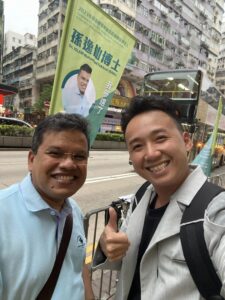
Question:
What do you think about the current administration’s attitudes toward the EM communities? Do you think John Lee is doing enough in his policy address?
Answer:
I am pleased with the Government’s initiatives for ethnic minorities outlined in the Chief Executive’s policy address. However, I have some additional proposals to support further ethnic minorities, such as creating a “Belt and Road Initiative” employment platform for EM job seekers, setting up an employment consultation hotline in ethnic minority languages, reviewing the “Race Discrimination Ordinance,” organizing an annual “Ethnic Minorities Summit,” appointing more ethnic minorities to public organizations and consultation groups, and helping ethnic minority groups set up offices and contact points.
Question :
What do you think about the political participation of ethnic minorities and their influence on policymakers? How can we give EMs a more prominent voice in the Chinese-dominant society? What do you envision in the future of inclusivity in Hong Kong politics?*
 Answer :
Answer :
Enhancing the political participation of ethnic minorities is crucial for creating an inclusive society. This can be achieved by encouraging EMs to engage in the political process, fostering dialogue between EM communities and policymakers, and creating platforms for EM voices to be heard. The future of inclusivity in Hong Kong politics should aim for fair representation and equal opportunities for all residents, regardless of their background or ethnicity.
Question:
“Youth prosperity leads to Hong Kong’s prosperity.” How can we effectively engage and empower young people? What suggestions do you have?
Answer :
Yes, it is accurate, as about 24% of Hong Kong’s youth population is young. Home Affairs Bureau” (“HAB”) into a new “Youth and District Affairs Bureau” has taken many initiatives to empower our youth in the last few years.
To effectively engage and empower our youth, we need to provide them with non-formal education such as scout-girls guides, Army Cadets, or Junior Police Corps, which will help them build positive awareness and personal development. We can add a compound curriculum, which means formal education shall enriched with vocational and practical training. We can do some internships and exchange programs through which they will understand the rest of the world. The Government had a youth housing scheme that needed to be upgraded according to the present demand. It is essential to involve them in decision-making processes, provide diverse educational and skill-building opportunities, create pathways to meaningful employment, support mental health and well-being, encourage civic engagement and volunteerism, develop youth-focused policies and programs, promote technology and innovation, foster diversity, and inclusion, offer leadership development opportunities, and seek continuous feedback and evaluation. By implementing these strategies, we can ensure that our youth are actively engaged, empowered, and equipped to contribute to the city’s prosperity.
 Question:
Question:
The Government is strengthening its response capabilities to extreme weather conditions. How can the community and your constituency collaborate to prevent and respond to these challenges? What suggestions do you have?
Answer:
I will raise awareness among the community about the extreme weather and the necessary steps. Typically, our community centers and sometimes schools are converted to temporary shelters. I will cooperate with all Government and no government agencies to find a better solution for my community. After the extreme weather is gone, we will clean our community to get back to stable condition.
Question :
Hong Kong is promoting the nighttime economy. Do you think it should be implemented in your community?
Answer:
As we know, Hong Kong is a place of Hospitality and Cultural Heritage, and some small businesses are surviving there in Temple Street night market in my community. If you consider those, Temple Street Night Market is important, and I do support a colorful Hong Kong and the promotion of the nighttime economy. But we also need to consider its location in a residential area. So, the timing of the night market may be limited until a period before the resident goes to sleep. Another option may be to resettle in the night market near Tsim Sha Tsui East, which has enough space in a non-residential area.
Question :
The population of school-age children in Hong Kong continues to decline. Do you think reducing class sizes and closing schools is inevitable?
Answer :
My policy is to find out the reason behind any problems. We know that the average class size in Hong Kong is currently 26 students per class. Some schools reported facing the risk of losing their school as the number of students in each class reaches 16 or even lower. I heard dozens of Hong Kong schools have recently faced ‘inevitable’ closures. Apart from the recent wave of emigration, the city’s low birth rate and the loss of students who have had to remain in mainland China because of COVID-19 travel restrictions also contributed to the issues. So far, one primary school has started ceasing operations, two government secondary schools have merged, and two others have been moved to a new development area with a sufficient supply of students. This is just the situation. But if the Government wants, we can still save the schools from this discomfort; I think the smaller class is better for quality education. The Government may rethink it. The Government may motivate citizens not to leave their land and insist that they take babies.
 Question:
Question:
The Government plans to implement waste charging next year. What aspects should the Government pay attention to during such implementation?
Answer :
The Government will implement Municipal Solid Waste Charging (MSW charging) on 1 April 2024. In line with the “polluter-pays” principle, the waste disposed of by all sectors in Hong Kong will be subject to charges based on quantity. The Government is planning two charging modes, i.e., (i) charging by designated bags/designated labels and (ii) charging by weight through a “gate fee.” It’s for climate change challenges everywhere. I think it is for a clean and hygienic Hong Kong. And we have nothing to worry about as if we waste less and dump less, we can save more. I believe the Hong Kong government will take all the citizen-friendly initiatives to implement waste charging.
Question:
In the face of an aging population in Hong Kong, what facilities and support services should be provided in the community?
Answer:
We should set up more Elderly Care Centres to provide more health care facilities. We may consider setting up senior-friendly apartments, retirement communities, and assisted living facilities. We may set up exceptional Recreation and Social Centres for older adults. We may offer complete free public Transportation Services for our senior citizens. We can offer Home Care Services to our older adults, including home health aides, nursing care, and support for activities of daily living to enable aging residents to remain in their homes as long as possible. Our community can secure pension, telemedicine service, Elder Abuse Prevention, and Legal Support, and adequately train caregivers to ensure a happy and peaceful life for our Honorable elderly.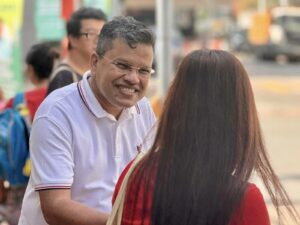
Question :
This year’s Policy Address established the “Patriotic Education Task Force” to promote community-related activities. What suggestions do you have for this initiative?
Answer :
Yes. So far, I remember it’s the No. 27th point Chief Executives policy address. I humbly agree with this. Patriotism, the deep-rooted love, loyalty, and devotion towards one’s country, plays a pivotal role in shaping societies and nurturing a solid nation. It is more than a mere sentiment; it is an essential ingredient that binds individuals together and propels collective progress. We may add a patriotism education chapter in our primary school curriculum so that our future generation will have a clear concept of one country, two system policies, and fundamental laws. It is widespread in many countries. To raise awareness about patriotism, we may organize seminars, competitions, festivals, etc.
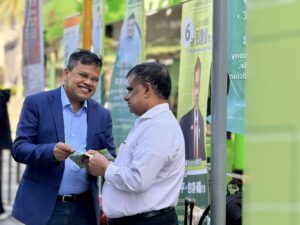 Question :
Question :
The average life expectancy in Hong Kong is increasing. Do you agree on extending the existing retirement age? And why?
Answer:
So, we can say our Health care system is sound, and that’s why the average life expectancy in Hong Kong is increasing. Officially, Hong Kong’s retirement age is 65 years old. But the standard practice is to retire early at 60 years old. But compared to other developed countries, it is too early. We should agree on an extension of retirement age of at least up to 65 without any thinking as it is in our law. Extending the retirement age can help ensure that individuals have the financial means to support themselves during their extended retirement years, increasing longevity. Raising the retirement age can help mitigate the strain on pension systems and government budgets, especially in the face of an aging population and a shrinking workforce. So, it will help us achieve economic sustainability. Many older adults possess valuable skills, knowledge, and experience. Extending the retirement age can allow organizations to benefit from their continued contributions to the workforce. So we can still have our understanding and experts in our workforce.
Question :
Under the new system, the constituency has expanded while the resources available to district councilors remain unchanged. How do you plan to serve the residents in your constituency effectively?
Answer :
Well, you can say the direct election constituency expanded. But if you count the other means of election, I can see the total number of councilors not changed that way. I think together we will work for a better community. I plan to make an expert citizen committee in my district that will always guide us to do our best. We will cooperate with the care and other committees to create a harmonious society. Trust me, our Government has a better plan for the district council.
Question :
How can technology be utilized to improve local services and enhance community management? What suggestions do you have?
Answer :
Utilizing technology to improve local services and enhance community management can lead to more efficient and effective governance, better public services, and increased community engagement.
Digital Platforms for Citizen Engagement: Implementing digital platforms such as mobile apps, websites, and social media channels can provide citizens with easy access to information, services, and opportunities to engage with local authorities. These platforms can gather feedback, report issues, and disseminate essential announcements, fostering more transparent and participatory governance.
Data Analytics for Decision-Making: Local governments can use data analytics and business intelligence tools to analyze large datasets and derive insights to inform decision-making processes. This can help identify trends, predict service demand, and allocate resources more effectively.
Smart Infrastructure and IoT: Implementing innovative technologies in infrastructure, such as smart meters, intelligent transportation systems, and connected public facilities, can improve the delivery of services, reduce operational costs, and enhance the overall quality of life in the community.
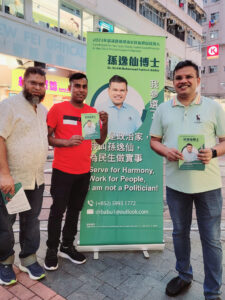 Online Service Delivery: Offering online portals for accessing government services, making payments, and submitting documents can streamline administrative processes and reduce the need for in-person visits, saving time and resources for both citizens and local authorities.
Online Service Delivery: Offering online portals for accessing government services, making payments, and submitting documents can streamline administrative processes and reduce the need for in-person visits, saving time and resources for both citizens and local authorities.
Community Collaboration Platforms: Utilize technology to create platforms that facilitate collaboration and communication among community members, local organizations, and government agencies. This can encourage volunteerism, community projects, and the sharing of resources and expertise.
Open Data Initiatives: Making government data publicly available in accessible formats can promote transparency, accountability, and innovation. Open data can empower citizens, businesses, and developers to create applications, conduct research, and propose solutions that benefit the community.
E-Government and Automation: Implement e-government solutions to automate routine tasks, streamline administrative processes, and digitize records. This can improve the efficiency of local government operations and reduce paperwork and bureaucratic hurdles.
Digital Training and Education: Providing digital literacy training and educational resources to community members can ensure that everyone can benefit from technological advancements. This can include workshops on using digital tools, accessing online resources, and understanding data privacy and security.
Remote and Hybrid Governance: Utilize technology to enable remote participation in local government meetings, public consultations, and decision-making processes, allowing citizens to engage in governance without needing physical presence.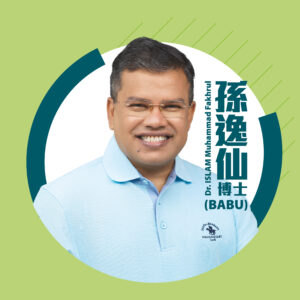
Question :
If a member of an organization raises suspicions about bid rigging in repair quotations for housing estates, how would you assist them?
Answer:
If a member of an organization suspects bid rigging in repair quotations for housing estates, here’s how I can help: First of all, I will form an independent citizen committee to investigate the complaint. Encourage the member to gather evidence like emails or quotes. 2. Understand the organization’s rules and Hong Kong’s laws on bid rigging and corruption. 3. Report to authorities like the ICAC or the Competition Commission if it seems illegal. 4. Investigate internally if it’s within the organization’s control, ensuring fairness and compliance with laws. 5. Protect the whistleblower from any negative consequences. 6. Act if the suspicions are valid, like reviewing the bidding process and considering legal steps. 7. Put measures in place to prevent bid rigging in the future, such as improving transparency and providing training on ethical business practices.
Question:
Hong Kong aims to establish a cultural and arts exchange center for local and international interactions. How do you think the community should support this development?
Answer:
Yes, sure, it is a demanding decision for racial inclusion. As Hong Kong is an international metropolis, we are enriched with diversity. So, I believe this initiative will be beneficial for a harmonious society. I hope this center will help citizens to thrive in a new environment. It will help the citizens to know the importance of similarities rather than differences to be enlightened with the beauty of diversity to make Hong Kong a more attractive, peaceful, and connected place for everyone.
Question :
Identify one environmental and hygiene problem in your constituency. If elected as a district councilor, how would you address it?
Answer:
Food waste is one of my constituency’s most significant environmental and hygiene problems. Many restaurants, especially night restaurants, have mixed waste with other municipal solid waste, which creates a big problem in drainage blockage in my constituency. I think residents may order such quantities of foods that they may consume. The alternative may be some good can be donated to the NGOs who works for needy people. Restaurants can recycle food waste by using very cheap machines. Most importantly, they can dump the waste food in the government-allocated waste collection points to avoid community problems.
Question :
If the Government allocates HKD 100 million to your district council for community development projects, how would you suggest utilizing the funding?
Answer :
Allocate the HKD 100 million funding to the district council for a range of community development projects, including infrastructure improvements, green spaces and parks, community centers and facilities, public art and beautification projects, technology and digital inclusion initiatives, community health and wellness programs, educational and vocational training, sustainable development and environmental initiatives, entrepreneurship and small business support, community engagement and participation, and safety and security enhancements. Engage the community in decision-making and implement transparent monitoring and evaluation processes to ensure the effective and accountable use of public funds.
Question:
The policy address proposes using “Care Teams” to identify and assist caregivers. What are the essential considerations in implementing this initiative?
Answer:
Implementation of “Care Teams” involves understanding caregivers’ needs, creating diverse professional teams, providing appropriate training, and identifying caregivers who need support. The assistance should be tailored, accessible, culturally sensitive, and coordinated with other stakeholders. Regular evaluation and secured funding are essential for the initiative’s success.
Question :
How do you think the Government should assist in managing housing estates or public housing?
Answer:
The Government can assist in public housing management by providing sufficient funding, implementing fair housing policies, and offering training for housing administrators. Encouraging community involvement, ensuring access to essential services, maintaining safety, and promoting sustainability are also important. Collaboration with other sectors, regular inspections, and legal aid services can further enhance housing conditions.
Question :
Middle-class individuals often express their desire for more government attention. What are their common concerns?
Answer:
Their primary concern is having a good home, being able to afford to pay for education for their kids, and having enough disposable income to take a family vacation.
Question :
Identify one housing issue in your constituency. If elected as a district councilor, how would you address it?
Answer :
This area also has many subdivided housing, one of my community’s most significant housing issues. The best solution is to offer more government housing. We get hope from the policy the chief executive addresses that the Government needs to work on. The district office, with the care team and other team members, also works their best for it. I will cooperate with them as a fellow mate.
Question:
How would you handle the situation if the Government introduces a measure that faces opposition from residents in your constituency?
Answer :
If the Government introduces a measure that faces opposition from residents in your constituency, here’s how you can handle the situation:
- Listen to residents’ concerns and understand their viewpoints.
- Communicate the reasons behind the measure and its potential benefits.
- Advocate for residents by conveying their objections to the Government.
- Facilitate dialogue and seek compromises or alternative solutions.
- Provide accurate information and monitor the measure’s impact.
- Respect democratic values and collaborate with stakeholders.
- Be responsive and committed to finding solutions that benefit the community.
Question :
Identify one transportation issue in your constituency. If elected as a district councilor, how would you address it?
Answer:
Many long-distance busses start from Tsim Sha Tsui towards Tsun Mun or Yuen Long, with about 30 stoppages and a fare of HKD22-25. If with that bus, by mistake, you go to Yau Ma Tei, only four stops, you also need to pay 22 hkd; it’s unfair. I have requested that buses add “section fares” and “transfer discounts.” and also asked to add’ student fare” in all private and public transport.
Question:
As a minority, how could you engage with most Hong Kong people?
Answer:
I am aware that as a minority, there may be challenges in engaging with most Hong Kong people. However, I believe in the multicultural values of Hong Kong and the law-abiding and friendly nature of its people. I have been with Rotary International since 1992 and have always found fulfillment in service to others. I intend to use these experiences to bridge cultural or linguistic gaps and work effectively for the betterment of all locals.
Question:
Do you think Hong Kong people are still interested in Voting?
Answer:
Voting is one of the most important civil rights. I believe that patriotic citizens will always participate in Voting as each vote helps shape the community’s future.
Question:
Why do you use the Chinese name 孫逸仙 (Sun Yat-sen)? Do you like our Father of the Nation very much?
Answer:
When I transitioned my nationality from Bangladesh to Chinese, a Chinese name became mandatory. A respected teacher of mine chose 孫逸仙 (Sun yat-sen) as my Chinese name, which is a tribute to Dr. Sun. I deeply admire Dr. Sun and his principles and am humbled to carry a name of such significance.
 Question:
Question:
What are the advantages and limitations for Ethnic Minorities in the role of District Councillor?
Answer :
Well, if you say about advantages, I would preferably say that as an EM, I know what difficulties EM is facing in Hong Kong, and it would be easy for me to solve the issue if I am elected. Until now, I have not faced any limitations as Hong Kong people are friendly, and equal opportunity is practiced in the DC election system.
Question:
Among the other candidates, two of them are also Ethnic Minorities. Do you believe that the three of you are very similar, potentially causing division among voters who support Ethnic Minorities?
Answer:
I don’t think so. For our candidature, EM voters will be more interested in the DC election, and more people will register them to vote in the future. So, the election will be more meaningful. I can tell you I am very simple and liberal. I do not have any political barrier where my concern is by the people for the people and of the people. I do not want to compare myself with anyone. I know I am a Rotarian, a Paul Harris Fellow, a lifetime member of Redcross. These made me a standard pupil already. I hope voters need ordinary people, simple representatives. DC election practicing equal opportunity. So, all qualified candidates are attending. I respect the initiatives of all candidates, no matter if they are EM or local.
—-
Sajjad: Thank you, Dr. Babu, for your time.
Dr. Babu:
Thank you, too.
God bless Yau Tsim Mong.
God bless Hong Kong, and Long Live China.
